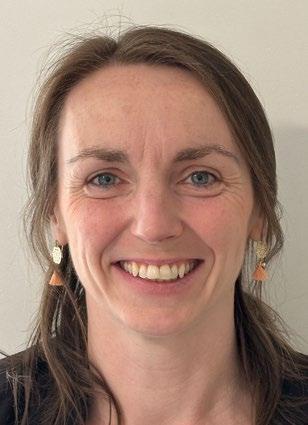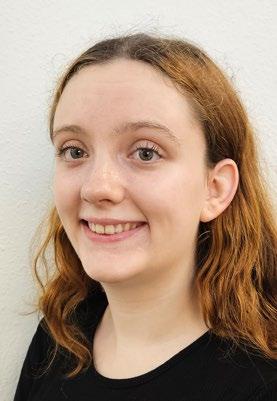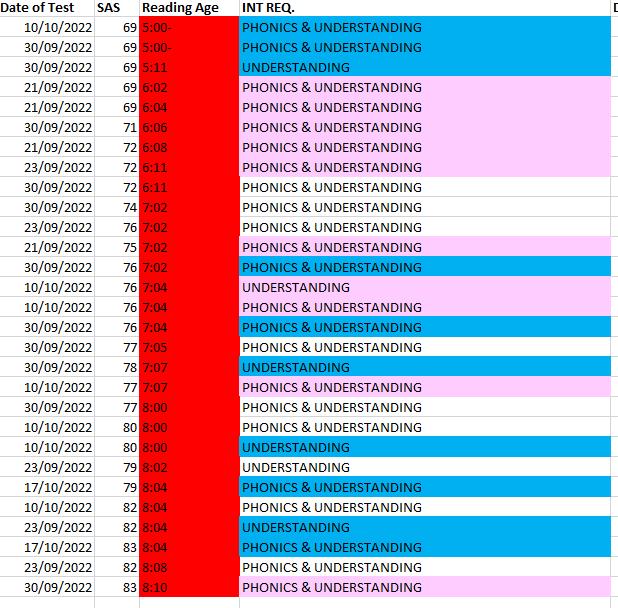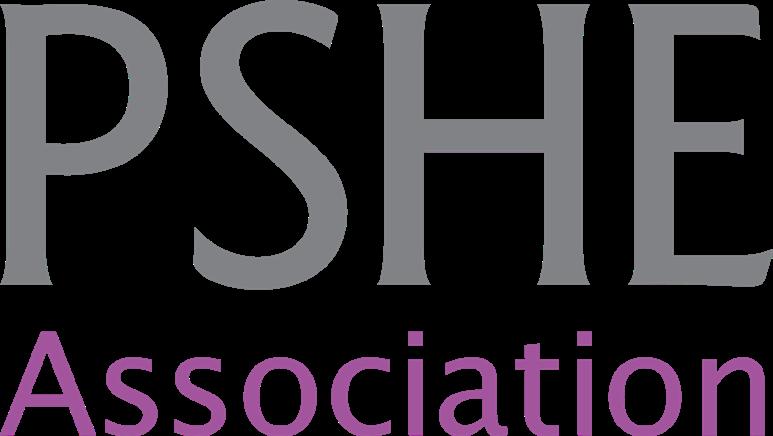





 Mr P Thompson - Headteacher
Mr P Thompson - Headteacher
SENDCO
Curriculum Leader, English





English/Drama
Religious Studies
 Mrs Wade
Miss Lupton
Mrs Tumelty
Miss Ellison
Mrs Wade
Miss Lupton
Mrs Tumelty
Miss Ellison





 Miss Collins
Music
Mrs Petit-Price
MFL
Miss Joyce
Geography
Mrs Gill Technology
Miss Collins
Music
Mrs Petit-Price
MFL
Miss Joyce
Geography
Mrs Gill Technology
now known as



 Mrs Haj-Manouchehri
Art
Miss Goldsmith,
Mrs Cain
Mr Shone
Exam Officer
Mrs Haj-Manouchehri
Art
Miss Goldsmith,
Mrs Cain
Mr Shone
Exam Officer







- Return to one break and one lunchtime
- Removal of the one-way system









12 Subjects 9-7 Grades
11 Subjects 9-5 Grades
11 Subjects 9-4 Grades
17% of all grades were at Grade 7+

There were 44 Grade 9 or Distinction* compared to 23 in 2022 and 28 in 2019
















• Why set targets?
• How do we set them? – KS2 information and information from the primary school – CATs – Cognitive Ability Tests – Year 7 In 2 Week
• Expectations for each prior attainment grouping, based on KS2 SATs and/or CATs.
A pupil will be have their prior attainment level based on KS2 Maths and English: (this is as set by the DfE as part of their Progress Measures)
• Low below 100
• Middle between 100 and 110

• Higher greater than 110.

The goal of formative assessment is to monitor student learning to provide ongoing feedback that can be used to improve their teaching and by students to improve their learning. More specifically, formative assessments:
• are generally low stakes


• help students identify their strengths and weaknesses and target areas that need work
The aim of summative assessment is to evaluate student learning at the end of an unit by comparing it against a standard or benchmark.
• Summative assessments are often high stakes, for example mocks or GCSE examinations
After each objective teachers make a formative judgement whether they achieve a Code of C1 to C5 where the C1 to C5 are the criteria for that objective, and the expectation is that based on your prior attainment you would expect to be:
C1 Above and beyond the objective


C2 High prior attainment expectation
C3 Middle prior attainment expectation
C4 Low prior attainment expectation
C5 Not achieved understanding of the objective Absent


Autumn Term 1 – Algebraic Thinking
Unit 1 Sequences
Unit 2 Understand and Use Algebraic Notation
Unit 3 Equality
Autumn Term 2 – Place Value and Proportion
Unit 4 Place value and ordering integers and decimals
Unit 5 Fraction, decimal and percentage equivalence
Spring Term 1 – Applications of Number
Unit 6 Solving problems with addition and subtraction
Unit 7 Solving problems with multiplication and division
Unit 8 Fractions and percentages of amounts
Unit 9 Operations and equations with directed number


Autumn Term 1 – Algebraic Thinking Unit 1 Sequences
Unit 2 Understand and Use Algebraic
Autumn Term 2 – Place Value and Proportion
Unit 4 Place value and ordering integers and decimals
Unit 5 Fraction, decimal and percentage equivalence
Spring Term 1 – Applications of Number
Unit 6 Solving problems with addition and subtraction
7 Solving problems with multiplication
Unit 9 Operations and equations with directed










We report home 4 times in the year:
Autumn October
Spring January
Summer April
Summer Final July
Options process starts in Year 9 –
Y9 Reports December – Year 9 Parents and Options Evening Spring Term – 28th February – Options deadline 2 weeks after Parents Evening




 Mrs Gail Reader Assistant Headteacher
Mrs Gail Reader Assistant Headteacher


• 98% expectation for all pupils
• Home Visits will be carried out


• Any pupil late to school more than once a week will be issued with a detention after school on a Friday lunchtime
• Ask permission for any time off school – medical evidence is required.
• Contact school every day that your child is absent
• Is your child really ill?
• Can you make an appointment out of school hours?

• To wear the correct uniform with pride at all times


• Jumpers – (October half term – Easter)
• No mobile phones at all (online safety)

• Reply slips to be returned by the stated deadline
• Ready to learn – correct equipment, homework completed, class charts to be monitored




Mentors and a Counsellor available in school


Excellent resources on the school website: https://lsmchs.com/mental-wellbeing











All pupil’s are accountable for their own learning and we, along with you as parents and carers will do our very best to allow ‘their lights to shine’
 Mrs Sarah Webb Assistant Headteacher Quality of Education
Mrs Sarah Webb Assistant Headteacher Quality of Education


Research shows that your interest and involvement in your child’s learning and education is more important than anything else in helping your child fulfil their potential. As parents, you are the people who go with your child on their learning journey, from the day they are born to the time they become an adult.

Department


What we expect from you is for you to be involved in your child's education process, to respect our school rules and teachers’ expertise and to accept your responsibility as parents.
Attend parents’ meetings
Ensure your child attends regularly
Make sure they are properly equipped for learning


Don’t accept ‘I’ve got no homework’




Support with homework





• Each pupil has been issued with a planner which will enable them to log all their passwords, printing code etc. needed for school.

• They will also be noting their attendance, merits and lost merits in it each week during form period so please feel free to have a look in this it see where they are up to.


• This is a good way to contact the form teacher if you need an update on anything.

Your child studies a wide variety of subjects at secondary school, and will be working with many different types of reading materials;
Parents who support their children’s education make a real difference to how well their child does, and there are lots of quick things you can do to help.
Any pupil who is a red reader (e.g. they are more than 2 years below their actual age) will receive targeted intervention 3 times a week for 30 minutes – each session attended has an impact of 2 months added to their current reading age so in a week they can catch up by 6 months. This our

Thinking

NGRT testing takes place over the next few weeks for all KS3 pupils. This test is really important to determine if your child needs any further intervention so it is important that they try their absolute best.
programme. Pupils will be withdrawn from any lesson to take part.

























Build up the number of words your child knows – their vocabulary. As they go through secondary school, your child will need to know specialist words and recognise them when they are reading. To help them learn these words, you could ask your child to explain to you what they mean.
Read books or plays that your child needs to study for school – in Year 7 and 8 in English your child will study a Shakespeare play. It can really help them if you read a couple of scenes together, and talk about the language and characters.

Why not learn a few short quotations together as a competition?






• Your child may be able to get free school meals if you get any of the following:


1. Universal Credit with a household income of less than £7,400 a year (after tax and not including any benefits you get)
2. Income-Based Jobseekers' Allowance
3. Income-Related Employment and Support Allowance
4. Child Tax Credit, not entitled to Working Tax Credit and household income less than £16,190
5. Support under part VI of the Immigration and Asylum Act 1999
6. Guarantee element of State Pension Credit

7. Income Support
8. Working Tax Credit 'run on' – the payment you receive for a further four weeks after you finish work


• Service children are slightly different in that we just update Sims, therefore no form is completed, we just need to be notified.








'Encouraging each child to become personally, emotionally, socially and physically effective, to lead healthy, safe and fulfilled lives; To become confident, independent and responsible citizens, making informed and responsible choices and decisions throughout their lives’


YEAR LIVING WORLD (1) LIVING WORLD (2) RELATIONSHIPS (1) RELATIONSHIPS (2) HEALTH & WELLBEING (1) HEALTH & WELLBEING (2) LETTING YOUR LIGHT SHINE (Bespoke Module)
7 Developing skills and aspirations
Careers, teamwork and enterprise skills, and raising aspirations
(Morrisby Careers Platform)
8 Community and careers


Equality of opportunity in careers and life choices, and different types and patterns of work
(Morrisby Careers Platform)
9 Setting goals
Learning strengths, career options and goal setting.
(Morrisby Careers Platform)
Financial decision
making Saving, borrowing, budgeting and making financial choices
Diversity
Diversity, prejudice, and bullying
Building relationships
Self-worth, romance and friendships (including online) and relationship boundaries
Religion and Belief: Christ at the Centre & First Aid
Engage with the Catholic ethos and values of St. Mary’s
Health and puberty
Healthy routines, influences on health, puberty, unwanted contact, and FGM
Welcome to St Mary’s Expectations and standards at St Mary’s
Digital literacy
Online safety, digital literacy, media reliability, and gambling hooks
Discrimination
Discrimination in all its forms, including: racism, religious discrimination, disability, discrimination, sexism, homophobia, biphobia and transphobia
Identity and relationships
Gender identity, sexual orientation, consent, ‘sexting’, and an introduction to contraception

Drugs and alcohol
Alcohol and drug misuse and pressures relating to drug use
Emotional wellbeing
Mental health and emotional wellbeing, including body image and coping strategies
St Mary’s & Me
What can you do to support the greater community at St Mary’s (Sustainability)
Employability skills
Employability and online presence
Respectful relationships
Families and parenting, healthy relationships, conflict resolution, and relationship changes
Intimate relationships
Relationships and sex education including consent, contraception, the risks of STIs, and attitudes to pornography
Peer influence, substance use and gangs
Healthy and unhealthy friendships, assertiveness, substance misuse, and gang exploitation
Healthy lifestyle
Diet, exercise, lifestyle balance and healthy choices, and first aid
Options (Preparing for KS4) Discussion of options and pathways at KS4.



• Recommendations from our own pastoral team, in terms of key priorities

• Information from the community, local police and LCC regarding recent incidents or rises in specific issues.
• Expert external agencies delivering age appropriate material.
• Input from members of staff across the whole teaching body, the Senior Leadership Team and the Head Teacher.
• Input from school Governors.
• Regular feedback from the “Voice of St Mary” (Parents/Pupils/Staff)











Pupil






• Musical Activities
• School Shows/Performances

• Sports Clubs
• District Sporting Competitions

• Theatre Visits
• Duke of Edinburgh



• Educational Visits

• Rewards Trips

• Foreign Trips
• Careers Visits/Interviews
• Department Clubs
• Christmas Events
• Visiting Speakers
• Field Studies
• Talent Shows








